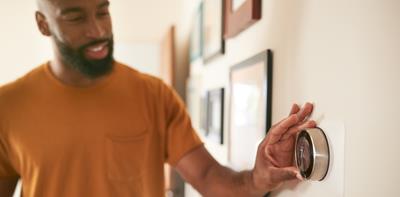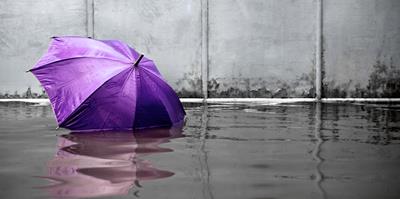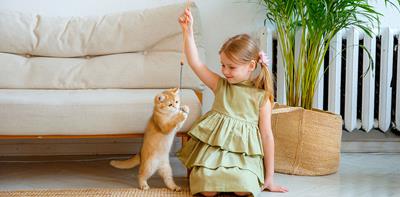
Many of us look forward to bonfire night, but as much as you might enjoy fireworks, it’s likely to be a different story for your pets.
Dogs and cats in particular are likely to be frightened by fireworks. According to the RSPCA[1], 62% of dogs and 54% of cats show signs of fear when they hear fireworks.
Read on for some top tips and advice on how to reduce the stress of fireworks – particularly on Bonfire Night or New Year’s Eve – for dogs, cats and other small pets.
1. Take your dog for a daylight walk
On Bonfire Night and New Year’s Eve it gets dark fairly early. Take your dog for a long walk while it’s still light if you can, before the fireworks start going off. This should help tire them out and hopefully make it easier for them to sleep through the noise.
Your dog may still need to go out in the evening. If you can, try to take them out for their last ‘essential’ walk after the fireworks have stopped.
2. Keep them inside
In the case of both cats and dogs, if they go outside when there are lots of fireworks going off, it is likely to cause them additional stress.
So, make sure all doors are shut, and there are no escape routes as some pets can go into a panic and behave erratically. Also, make sure everyone in the household knows they should open and close any outside doors quickly, to avoid any pets escaping.
If you need to take your dog outside to the toilet, make sure that they won’t be able to escape from your garden or outdoor space.
3. Close your windows, shut the curtains and turn on the TV
Try to minimise the noise from outside by shutting all of your windows. Having the TV or some music on should help to absorb any noise from outside, although don’t turn it up too loud or this could cause further issues.
You might like to try this Spotify playlist of background sounds created by pet charity PDSA to help keep your pet calm and drown out fireworks.
Of course, it’s not just the noises, as the flashing lights can also be stressful. So, it’s best to close all curtains and blinds, and keep the lights on in any rooms your pets go in.
4. Create a den where they can feel safe
If your dog is crate trained[2], leave the crate open with a cover over the top. This gives them the option to hide in there if they want to.
Be careful not to close them in though, as this could increase their fear. While it’s good to create a den, they should also have the option of going anywhere they feel comfortable. This might just be curled up by your side on the sofa.
If you don’t have a crate, you could drape a blanket over a table, and put comfortable sheets or their bed underneath to create a similar effect.
5. Distract your dog
Giving your dog a long-lasting chew should help to keep them occupied. You can also distract them with their favourite toy, or even better introduce a new one. However, it’s best not to overdo this, if you’re acting in a way which feels different and out of routine, this could also cause your dog anxiety.
6. Stay calm
Similarly, you should try to keep your tone of voice and behaviour as normal as possible, and remain calm yourself. You might make them more anxious by over petting them and getting stressed.
7. Use a pheromone plug-in (in advance)
Pheromone diffusers give off scents which can have a calming effect on pets, but humans are unable to smell. The best-known plug-ins are Adaptil for dogs, and Feliway for cats.
These don’t have an instant effect, so it’s best to start using them a few weeks before fireworks night. They’re also not designed to be a cure-all in themselves, but should certainly help, if combined with some of the other steps to keep your pet calm.
8. Keeping cats safe during fireworks
Cats are also more likely to become stressed if they’re outside during fireworks, so it’s best to keep them indoors on fireworks night. If they’re not already microchipped, try to do so before fireworks, in case they become startled and run outside.
While your cats are very likely to have hiding places within your home already, create some in advance if they don’t. They tend to feel safest when high up, so create a covered space on top of a wardrobe, for example, then do a quick check that the den is secure, and won’t fall off.
Top tip: Don’t pick up or in any way restrain your cat if they become frightened. It’s best to leave them in control. If they would rather go and hide, let them do it.
9. Keeping small pets safe during fireworks
For any other small pets, try to create a soundproofed area in which they can hide. Cover their pens or cages, but make sure it’s well ventilated. It’s also good to have an area they can look out of if they need to, so they don’t feel trapped. Also, provide them with some extra bedding for burrowing to keep them busy and comforted.
If your small pets live outside, it’s definitely worth considering bringing them indoors for fireworks night. If you have rabbits or guinea pigs that live outside, for example, move their hutch into a garage or shed a few nights in advance so they get used to the change of scenery beforehand.
For more tips on how to take keep your pet safe, go to Solved.
[1] https://www.rspca.org.uk/getinvolved/campaign/fireworks
[2] https://www.pdsa.org.uk/pet-help-and-advice/looking-after-your-pet/puppies-dogs/crate-training


